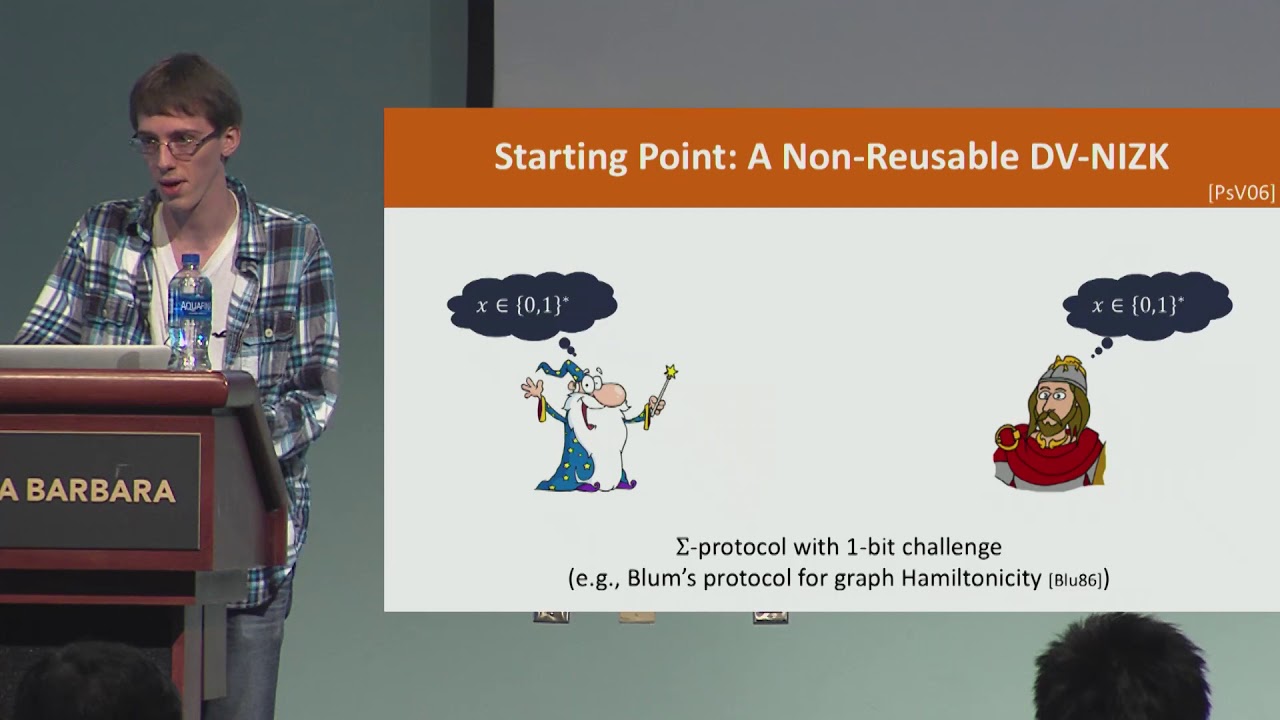Welcome to the resource topic for 2019/242
Title:
New Constructions of Reusable Designated-Verifier NIZKs
Authors: Alex Lombardi, Willy Quach, Ron D. Rothblum, Daniel Wichs, David J. Wu
Abstract:Non-interactive zero-knowledge arguments (NIZKs) for NP are an important cryptographic primitive, but we currently only have instantiations under a few specific assumptions. Notably, we are missing constructions from the learning with errors (LWE) assumption, the Diffie-Hellman (CDH/DDH) assumption, and the learning parity with noise (LPN) assumption. In this paper, we study a relaxation of NIZKs to the designated-verifier setting (DV-NIZK), where a trusted setup generates a common reference string together with a secret key for the verifier. We want reusable schemes, which allow the verifier to reuse the secret key to verify many different proofs, and soundness should hold even if the malicious prover learns whether various proofs are accepted or rejected. Such reusable DV-NIZKs were recently constructed under the CDH assumption, but it was open whether they can also be constructed under LWE or LPN. We also consider an extension of reusable DV-NIZKs to the malicious designated-verifier setting (MDV-NIZK). In this setting, the only trusted setup consists of a common random string. However, there is also an additional untrusted setup in which the verifier chooses a public/secret key needed to generate/verify proofs, respectively. We require that zero-knowledge holds even if the public key is chosen maliciously by the verifier. Such reusable MDV-NIZKs were recently constructed under the ``one-more CDH’’ assumption, but constructions under CDH/LWE/LPN remained open. In this work, we give new constructions of (reusable) DV-NIZKs and MDV-NIZKs using generic primitives that can be instantiated under CDH, LWE, or LPN.
ePrint: https://eprint.iacr.org/2019/242
Talk: https://www.youtube.com/watch?v=dQ2p4k_78BY
See all topics related to this paper.
Feel free to post resources that are related to this paper below.
Example resources include: implementations, explanation materials, talks, slides, links to previous discussions on other websites.
For more information, see the rules for Resource Topics .
